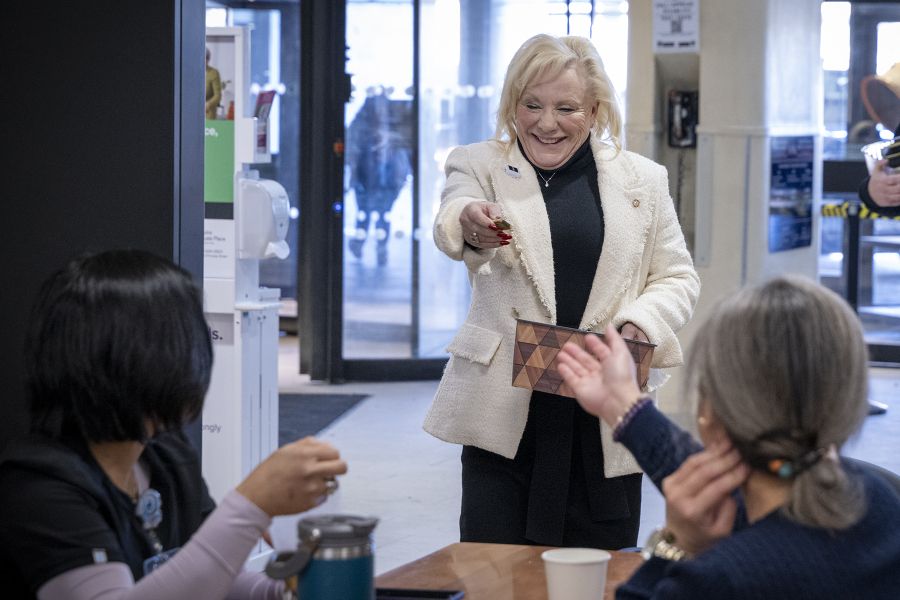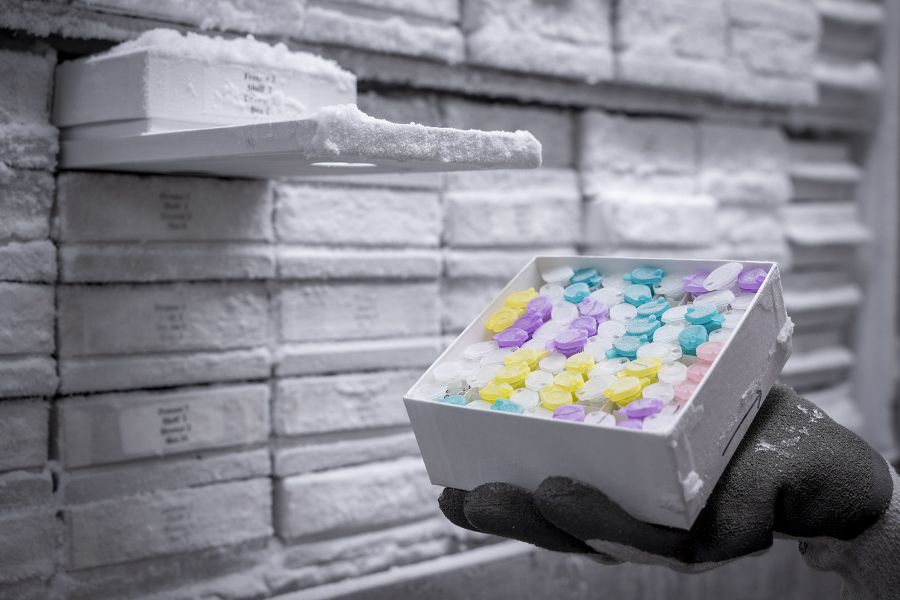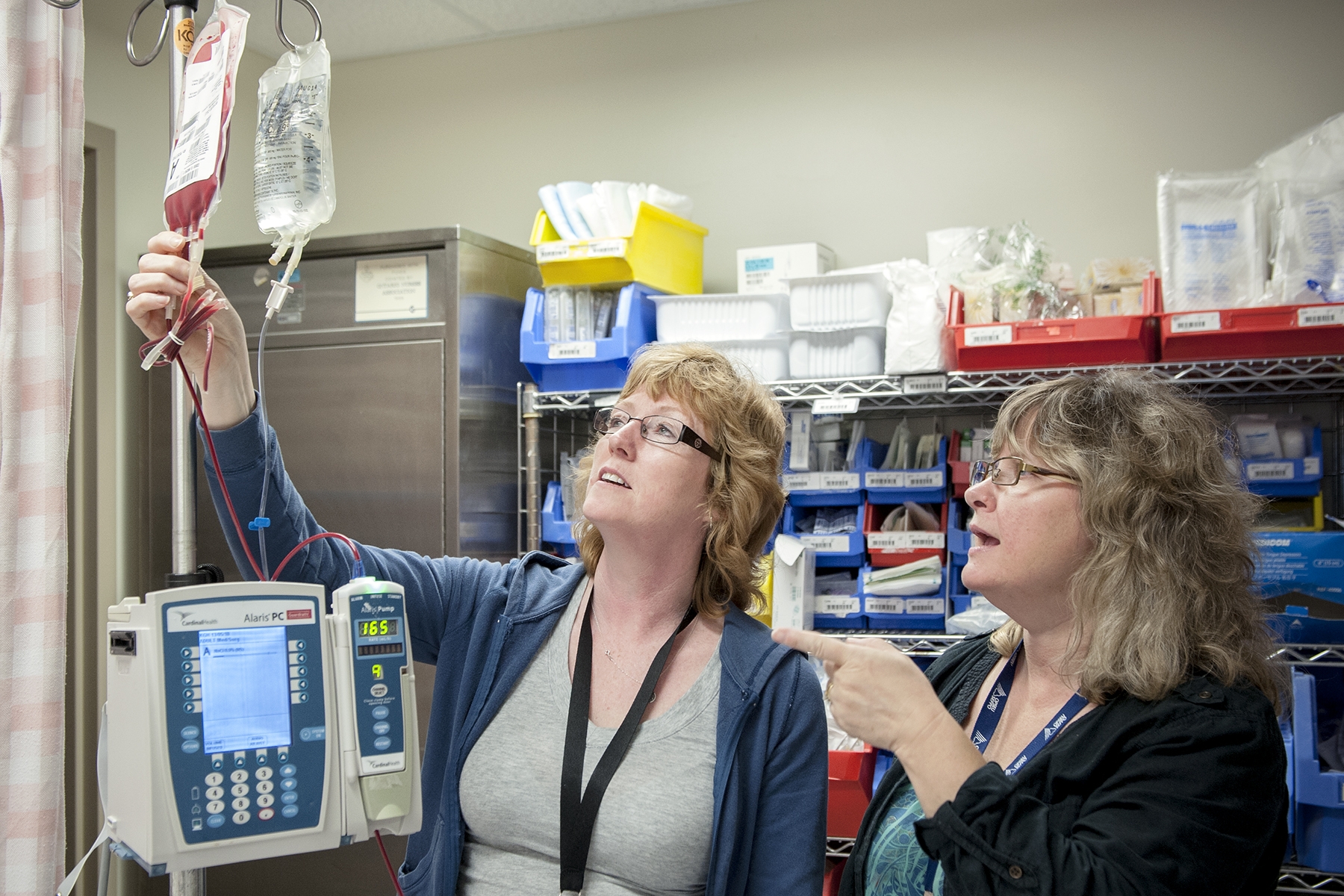
Blood transfusions are a common procedure at Kingston General Hospital. Each year we perform thousands of them and we now have a new resource on board to help us carry them out more effectively - a Transfusion Safety Officer.
"In this new role, I'll be working closely with interprofessional teams to make sure we are doing everything we can to ensure our transfusion system is seamless and safe," says Beverly Weaver, Transfusion Safety Officer.
Weaver has been in the role for the past few weeks and as a starting point she has been busy auditing some of the transfusions that happen every day. Ultimately, this will give the hospital a snapshot of what we are doing well and the safety gaps that need to be addressed.
"The standards around the appropriate use and administration of blood and blood products are always changing," says Joyce deVette-McPhail, Director of Clinical Laboratory Services. "One of the Transfusion Safety Officer's key roles will be to study all of our safety systems to make sure we are fully up to date with what is required of us."
For example, these safety systems can be complex and include such things as how we measure the temperature of a bag of blood, keep track of how long itís been out of the refrigerator, and make sure the necessary equipment is always safe and ready to go. Another major focus will be on ensuring our patient identification system leaves no room for error.
The Transfusion Safety Officer will also be responsible for educating interprofessional staff about when to use blood, how to best to administer it, and about the risks of adverse reactions related to transfusions.
"Transfusions are not a procedure without risk and the Transfusion Safety Officer is going to be an important resource, as many staff do not carry out transfusions all that often," says Dr. Lois Shepherd, Medical Director of the Blood Bank.
"Beverly will be available to provide advice and information right away and ensure we have a safer environment in which to transfuse our patients."
The Transfusion Safety Officer is not the only person at KGH now helping staff and physicians with blood transfusions. Our hospital has an Ontario Nurse Transfusion Coordinator (ONTraC) whose role is to increase awareness around blood management and conservation strategies and to collect information on our transfusion practices.
Together, these two roles will ensure the transfusions we are doing are appropriate and that each one is carried out in an environment where patient safety is of foremost importance.
Gallery
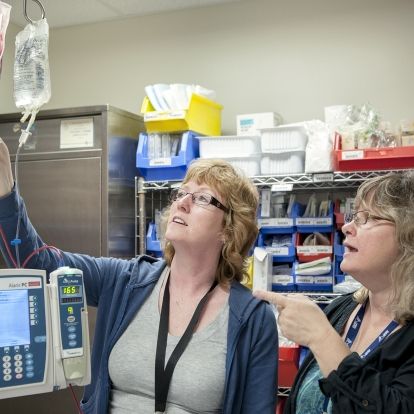
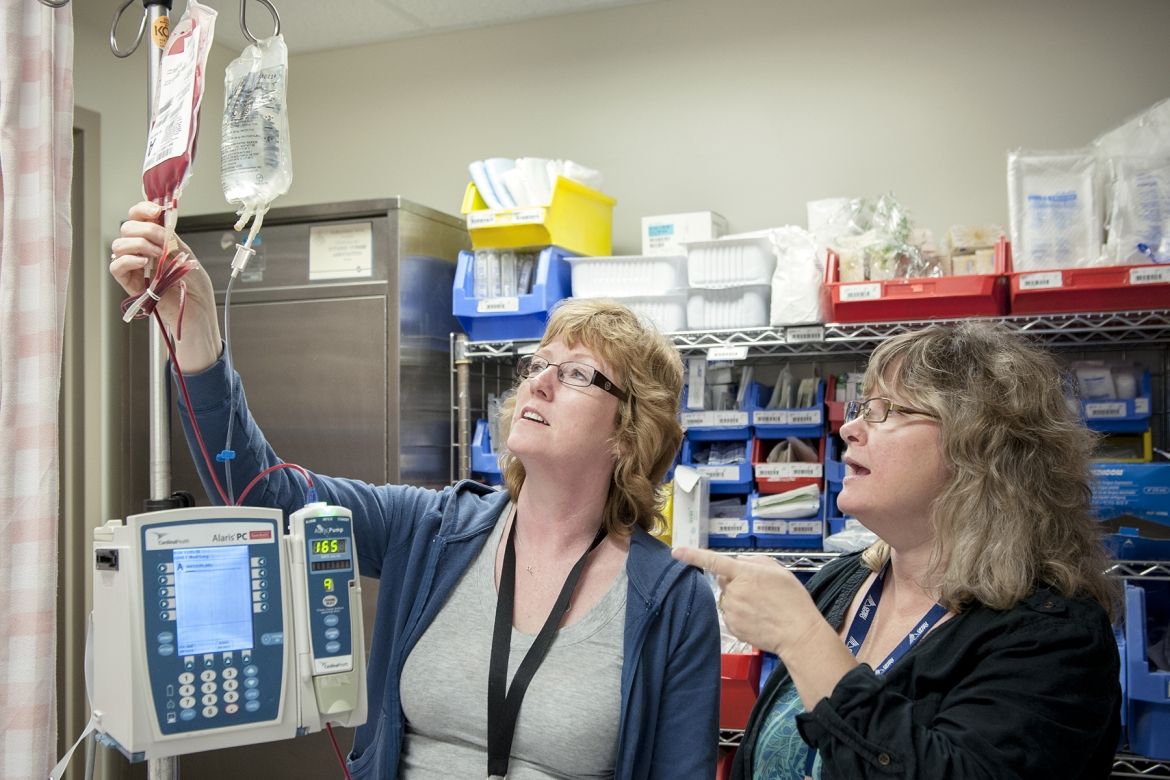
Transfusion Safety Officer Beverly Weaver (right) and Registered Nurse Suzanne Bashall discuss a blood transfusion being performed in our Post Anaesthetic Care Unit.

